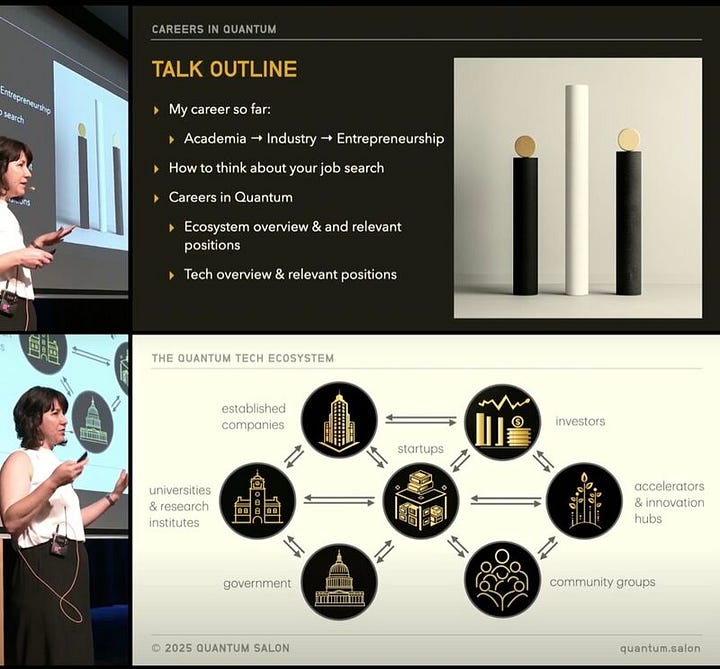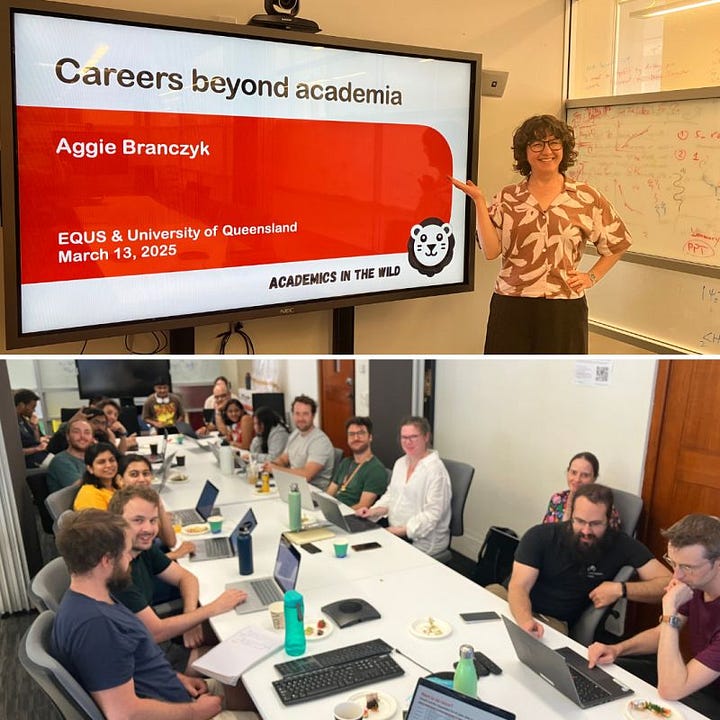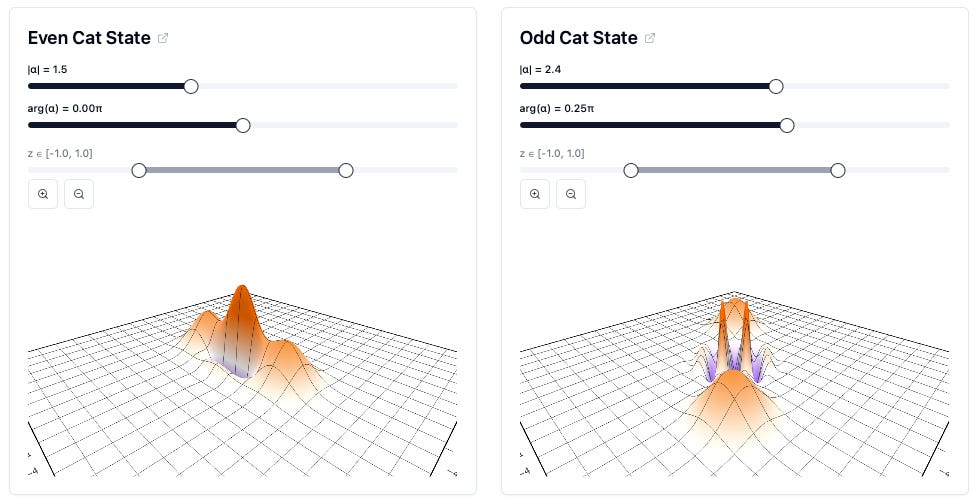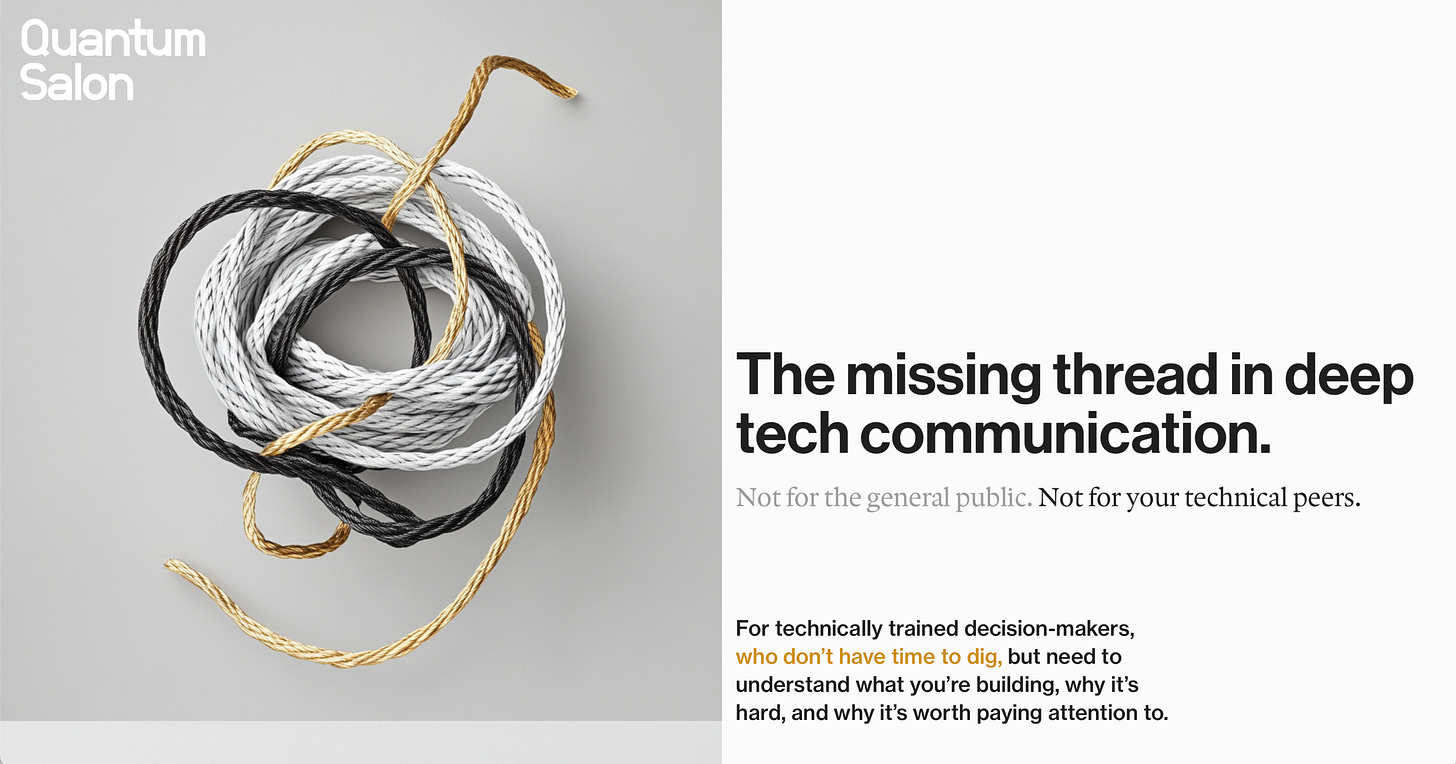Where did the last 7 months go?
An update from Aggie Branczyk Enterprises: what worked, what didn't, and what's next.
A lot has happened in the seven months since my last post. Before I dive into updates, a brief refresher.
In October last year, I started a company. At the time, I didn’t really know what the company would do, but I knew that I wanted it to be a lifestyle business:
A lifestyle business is a type of business that is designed to support the owner’s preferred lifestyle rather than solely focusing on maximizing profits or achieving high levels of growth. Owners of lifestyle businesses prioritize personal goals, such as flexibility, work-life balance, and the pursuit of their passions, over the traditional business objective of maximizing profits. (source)
My goal was to build the company in public, so others could follow along and learn from my experiences. I wrote about joining a new entrepreneurship community, my experience at an academic conference after a long absence, and my vision for the company. Then several posts on more mundane topics like making a company website and how to go about business incorporation in Canada.
Around December, things got a bit intense…and this Substack got quiet.
It’s now time to take stock of everything that’s happened in that time, and share what I’ve learned.
An expensive lesson about opportunity cost
One of the reasons things got intense around December was that I agreed to be on the review committee for a big Canadian grant program.
Since it was my first time doing this, I think in hindsight I put in more time and care into reviewing the applications than I could have gotten away with. But even if I did only the minimum necessary, it still would have been an overwhelmingly time-consuming activity. The bulk of it lasted for two months. It was unpaid work, except for a very small honorarium.
The process was interesting, but completely ridiculous for someone who was no longer participating in the academic system (i.e. not pulling a salary from a University) to volunteer so much of their time that could be spend doing paid work (or developing their own business).
When I added up the hours spent and multiplied it by my hourly consulting rate, it was 😭 (that’s actually not the right calculation to do, but the right calculation still gives an unhappy answer).
It was an expensive lesson in opportunity cost. I think in future, I’ll leave this kind of volunteer work to the academics 😎
Academics in the Wild (community is hard)
When I left Perimeter Institute for IBM Quantum in 2020, I wrote about my experience transitioning to industry on LinkedIn. This led to me having many, many conversations with students and postdocs considering this transition, and it really highlighted a need for this kind of support in the community.
In 2023, I started a podcast called Physicists in the Wild, where I interviewed former physicists who pursued careers outside academia. You can find it on YouTube or on your fav podcast app.
After leaving IBM in 2024, I wanted to expand the scope of this initiative. So I founded Academics in the Wild, which was intended to be a community where current and former physics and math students and postdocs could navigate their journey away from academia together.
I hosted a lot of online events: Q&A sessions, 1-1 coffee chats, group meetups. I had a Discord channel and then later a Slack channel. And I was sharing a lot of relevant content on Substack and LinkedIn.
Unfortunately, even though there was a lot of interest in joining, not much happened after people joined, unless I made it happen. This wasn’t the members’ fault. Communities require a heck of a lot of nurturing before they can become self-sustaining. To truly flourish, AITW needed a lot more from me, but given my other responsibilities, I wasn’t able to give it.
So in May, I decided to wind down the community. It was sad, but at the same time, it really freed me up to focus on other things.
I have zero regrets about giving this a try though. I had heard that communities are hard. But sometimes (or for me, often) you just need to experience it yourself to really believe it.
Career talks and workshops
Related to the Academics in the Wild initiative was a series of career talks and workshops I’d given at various institutions and venues.


These started a bit before the company was formed. They included:
A couple of talks at the MIRAQLS summer school in Warsaw in June 2024
A talk at Q-SITE in Toronto in September 2024
A workshop at the Perimeter Institute for Theoretical Physics in Waterloo in February 2025
A couple of workshops in Australia (University of Queensland and University of Sydney) in March 2025
A talk and a workshop at the IMPRS-QST Summer School in Kufstein, Austria (presented under the Quantum Salon brand) in June 2025
I will also be giving a talk at the Quantum Education Summit in Barcelona in December (presented under the Quantum Salon brand)
Outside of Waterloo (where I live), travel and accommodation expenses were covered by the organizers, which was awesome. But other than that, these speaking engagements were unpaid. This is the norm in academia, but it probably shouldn’t be the norm for me.
Again, I don’t regret doing these since I learnt a lot about giving workshops, and met some great people. It also led to a few networking opportunities which I anticipate will lead to new business. But moving forward, I plan to charge speaking fees for these workshop.
Educational apps
Some time during all of this, I jumped on the AI-assisted-coding bandwagon. I made several web apps using a combination of Cursor and Lovable:
Bloch World: A tool for mapping geographical coordinates to quantum states on the Bloch sphere.
Maxwell’s Demon game (it’s not optimized for mobile, so use desktop): Toggle the divider to separate particles into different chambers, reducing the system's entropy.
Wigner Function Gallery: A tool for visualizing Wigner quasi-probability distributions for various quantum states popular in quantum optics.
I have some other ideas, like building a tool for plotting Hong-Ou-Mandel interference from realistic sources, but I don’t see these apps as having much business value right now. AI-assisted-coding is great for prototypes, but it would require some serious work to make a product.
I do have some ideas for developing a business around this, but it would take significant time investment and recruitment of software developers. So for now, I am moving these into the hobby category.
Research
One of the things on my list was to start a research program in quantum foundations. Research is always challenging to do alongside other obligations. It’s extra challenging when it’s not your area of expertise and you’ve been out of the game for so long.
Despite this, I managed to dedicate some time to attending a course on Quantum Causal Inference in June and July as a step toward my goals. But I think out of all of the things I want to achieve, this is going to be the most difficult one.
Given that it’s not strategically aligned with my core business activities (we’ll talk about those later), I’m also moving this into the hobby category.
A new podcast
Along the way, I started a titular podcast with my old friend Tobias Osborne, a professor at Leibniz Universität Hannover, Germany.
Mainly we just chat about random things (academia, burnout, productivity, travel, AI etc). People seem to like it and we’ve gotten quite a bit of really touching feedback. I actually think it’s pretty good too. We’ve had three episodes so far, coming out roughly once a month. The plan is to keep it up for 12 months and then reevaluate.
I’m tentatively keeping it in the hobby category though. I’ve always wanted to take a stab at monetizing a YouTube channel, but I think the audience for this one is too niche for that to be realistic. And even though I’m learning a few new things about the process of podcasting, this one is too far removed from my core business activities to be considered strategic.
Deep tech communication
So far, I’ve talked about the things that haven’t made money. But throughout all of this, there has been one thing that has been generating revenue: consulting for startups.
I had intended to do some consulting at some stage, either some kind of strategic advisory work, or work related to some of my prior research. But I wasn’t actively looking for clients.
Then a startup founder reached out to me for help with their social media communications strategy, as they approached an upcoming funding round. I had been doing that kind of thing for myself over the last few years anyway, so it made sense. I ended up really enjoying doing that for someone else, and when another startup founder reached out to me to see how we could work together, I leaned in the direction of communication.
The more conversations I had with founders, the more it became clear that there was a need for this, and that some people were happy to pay for it. There was a market. How big, it wasn’t clear, but it was enough of a lead for me to double down and take it seriously.
Quantum Salon
Most of the talks and workshops I gave over the last year were presented under the Academics in the Wild brand. When I decided to focus on deep tech communication, I needed people’s perception of what I do to also shift from “careers outside academia” to “deep tech comms”. So I made a conscious decision to stop using the AITW brand in public.
I also realized that even though calling my company Aggie Branczyk Enterprises made sense as a container for different business activities, it wasn’t really great for marketing. I decided I needed a cooler trading name that reflected the industry I was in.
So having a name like Quantum “Something” made sense. I also thought it would be cool to have the “Something” be a top-level-domain (TLD) so that my web address could be quantum.something. It turned out that most of the quantum.something domains were either lame, taken, or prohibitively expensive. Except for quantum.salon.
The .salon TLD was intended for companies in the beauty business, but I was really drawn to the other definition of salon:
salon /sálɔn/ noun
a place where curious minds gather to share insights, challenge assumptions, and spark fresh ideas
Admittedly, this leads to some confusion, and funny assumptions about me owning a hair or beauty salon, but at least it’s memorable, and the “quantum” part signals what it’s supposed to.
Initially, the plan for Quantum Salon was to be a long-form deep-dive magazine on the quantum ecosystem. But when I decided to focus the business on deep tech communication for startups, I adopted that name for the agency.
Maybe one day, the magazine will also exist. For now, though, I just launched a Quantum Salon Substack to support the agency.
It’s finally time to focus
One of the big themes in my post outlining my vision for the company was my resistance to focusing on any one thing. I wanted to do so many things.
Even though deep down I knew that ultimately I would need to focus, I didn’t know what I should focus on. I also didn’t know which of the things on my list belonged in the hobby category and which should be counted as business activities. So I threw everything under the banner of Aggie Branczyk Enterprises Inc. and just dove in.
In the last nine months, however, I feel like I’ve gotten a lot of those things out of my system. And I’ve made progress towards my original goal: finding the perfect intersection of my interests and market needs. I think I have enough evidence now that there is a market need for deep tech communication, and it’s work that is very interesting and fulfilling to me.
It’s what I want to make the focus of my business.
Freelancing vs. building a business
If I wanted to be a freelancer, then I would pretty much be done now. My activities would now consist of finding clients and doing work for them. But ultimately, I want to build something that can work without me being personally involved in every single project.
Right now, when a client needs communication work, I do that work. But what happens when I want to take a vacation? Or when there are more clients than I can personally handle? A true business needs systems, processes, and eventually other people who can deliver the same quality of work consistently.
So this is where the real work starts. I need to distill and document my approach, create repeatable frameworks, and think about how to maintain quality while scaling.
Balance
Even though I’m ready to focus, I’m also wary of the pendulum swinging too far, resulting in burnout. So I’ve been putting a lot of effort into cultivating a work schedule and environment that is both sustainable and fulfilling.
I resurrected my Getting Things Done framework, which I implement in Omni Focus, which worked so well for me in my last years of academia. It’s about having a system that stores everything that needs to get done in a way that frees your brain to focus on deep work and rest as needed.
I also set some rules:
Thursday and Fridays are reserved for deep work (no meetings!)
In particular, Fridays are reserved for curiosity-driven deep work that doesn’t have to be (but can be) strategically aligned with core business activities…this is where I can do the things that I’ve put in the hobby category (like Google’s old 20% time)
I’m an outgoing introvert, so I mostly work from home (which the introvert in me needs), but once or twice a week, I hang out at Builders Club, which gives me a sense of community and all those little office things you miss at home, like water cooler talk (which the outgoing part of me needs).
So far this has been working really well. It feels productive and sustainable, and keeps all my cups full.
So what’s next?
I’ll continue to build out Quantum Salon, focusing on getting more clients, honing the work that needs to be done, and figuring out the systems and processes to make a scalable business.
I’ll keep my hobby projects, but the balance has shifted: 80% core business activities and 20% hobbies.
I’ll continue writing. There is a lot of interesting stuff to talk about: working on the business vs. working in the business, how to do sales and marketing without feeling icky, how to handle finances and book keeping, how to operate under a different trade name to the one that’s registered, how to price your services as a knowledge-work-based consultant, etc. I’ll be covering these in upcoming posts.
Stay tuned!
Thanks for reading! Feel free to click the ❤️ button on this post so more people can discover it on Substack 💡 tell me what you think in the comments!





Thanks a lot for this update, it's great to follow your trajectory :-) Florian